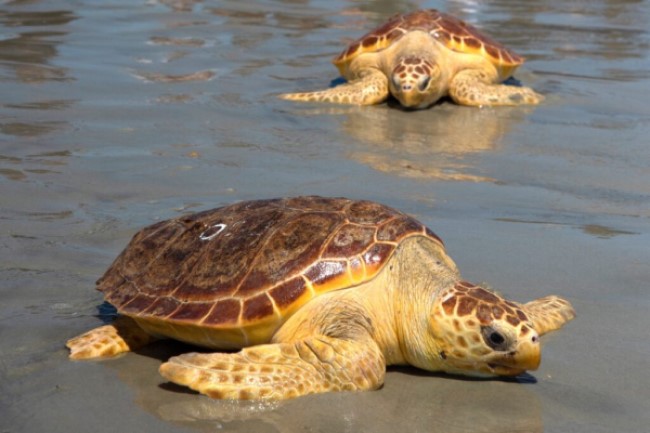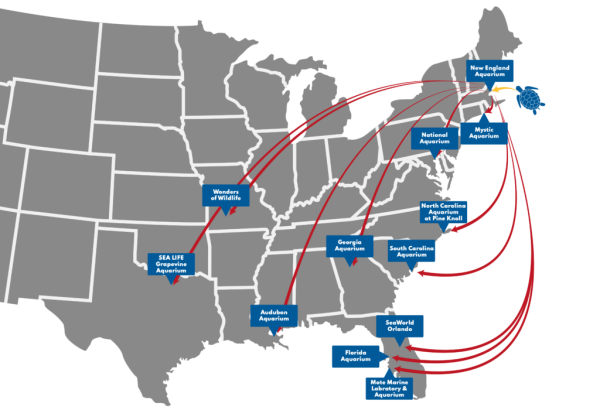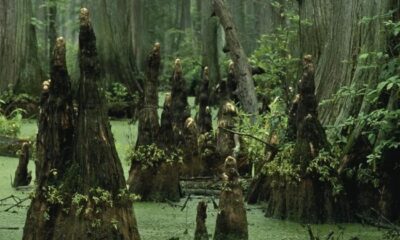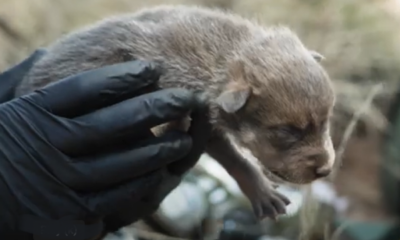Adventure
Cold-Stunned: Sea Turtles in Crisis

Image courtesy Dylan Ray
As part of a nationwide commitment to conservation, 12 Association of Zoos & Aquariums (AZA) facilities have teamed up this year to rescue and rehabilitate 518 cold-stunned sea turtles off the coast of New England.
Participating in this global effort are some of the nation’s top wildlife conservation and education destinations, including the world-renowned and award-winning Johnny Morris’ Wonders of Wildlife National Museum & Aquarium (WOW), New England Aquarium, Audubon Aquarium of the Americas, Florida Aquarium, Georgia Aquarium, Mote Marine Laboratory and Aquarium, Mystic Aquarium, National Aquarium, North Carolina Aquarium at Pine Knoll Shores, SEA LIFE Grapevine Aquarium, SeaWorld Orlando, and South Carolina Aquarium.
In the last decade, more than 10,000 sea turtles have required rescue along the U.S. Atlantic Coast due to cold-stunning. This life-threatening condition occurs when water temperatures rapidly decline, and sea turtles are unable to move to warmer waters or fend for themselves. Like all reptiles, sea turtles are ectothermic (cold-blooded) and cannot regulate their body temperature. If water temperatures drop below approximately 50 degrees Fahrenheit (10 degrees Celsius), sea turtles become lethargic and are unable to swim, forage for food and defend themselves from predators. The number of cold-stunned sea turtles varies from year to year based on migratory habits and the severity of winter storm conditions in the area. This season, more than 1,000 turtles washed ashore, making it the third-largest cold-stunning event on record out of the Northeastern United States.
The National Oceanic and Atmospheric Administration (NOAA) and U.S. Fish and Wildlife Service are two key governmental agencies dedicated to conserving and managing marine ecosystems. These organizations oversee sea turtle rescue efforts and facilitate transport from the beaches to the New England Aquarium’s Sea Turtle Hospital, where the turtles receive initial assessments and urgent care year after year. As the hospitals fill up, the nonprofit group Turtles Fly Too then helps transport many of the animals across the country to AZA-accredited institutions.

All seven sea turtle species are on the endangered species list, making the work of these facilities even more important. With the complexity of their life cycle, only 1 in 1,000 hatchlings that make it to the ocean will survive to adulthood. It is vital to the future of the species to return as many sea turtles as possible back to the wild population. They are an essential part of marine ecosystems worldwide and are at great risk due to water temperature changes and other environmental factors.
-

 Hunting2 months ago
Hunting2 months agoDrain the Swamp: Corruption Scandal at Washington State’s Fish & Wildlife
-

 Adventure3 weeks ago
Adventure3 weeks agoDoes the “Big Beautiful Bill” Have a Public-Lands Wart?
-

 Adventure1 month ago
Adventure1 month agoHowling in Cuckoo: How Mexican Wolves are Fostered
-

 Gear7 days ago
Gear7 days agoLet Freedom RING! Primary Arms’ Independence Day Category Sale Starts NOW
-

 Adventure2 months ago
Adventure2 months agoGoing Rodeo! BANISH Named the Professional Rodeo Cowboys’ Official Suppressor
-

 Adventure2 weeks ago
Adventure2 weeks agoU.S. Bighorn Sheep Going Home to Canada
-

 Adventure4 weeks ago
Adventure4 weeks agoYour Dream Hunt Could Be a Movie & Leupold Can Help
